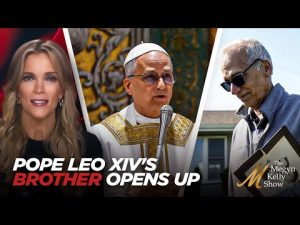In the midst of social media frenzy and wild conspiracy theories, the world was recently hit with some big news: the death of Pope Francis. Aged 88, the Pope passed away the day after Easter, with the Vatican announcing that he succumbed to a stroke that led to a coma and eventually a heart failure. Sadly, his health had been a major concern for quite some time, as he dealt with pneumonia, diabetes, and hypertension. These compounding health issues ultimately took their toll.
Among the gifts of ties, rosaries, and giant chocolate Easter eggs for his children, the meeting between the Pope and the visitors couldn’t have been more cordial. Yet, the show must go on for some, who were quick to exaggerate this diplomatic gesture into an apocalyptic event.
In truth, Pope Francis’ passing came after a series of prolonged hospital stays and escalating health challenges. His life, filled with significant contributions to the Christian faith, was sadly being trivialized into a blame game of political proportions. The real focus should lie in understanding that his papacy, whether one agrees with his views or not, was pivotal, advocating for everything from climate change awareness to migrants’ rights.
As the world mourns his death, there’s a call among conservatives for the Catholic Church to revert to its traditional roots. The hope is that a new Pope grounded in conservative values can steer the faithful toward stability in a world where cultural norms are rapidly shifting. Pope Francis’ legacy is noted, but the stage is set for potential transformation, with many eager to see which direction the Catholic leadership will adopt next.
The entire saga illustrates a quintessential example of media bias and political maneuvering. It’s clear: whether one is watching the white smoke or delving into papal policies, there are plenty of angles and stories yet to unfold in this ever-spinning narrative of faith and politics. Let’s just hope future debates focus more on facts than unfounded assertions.







